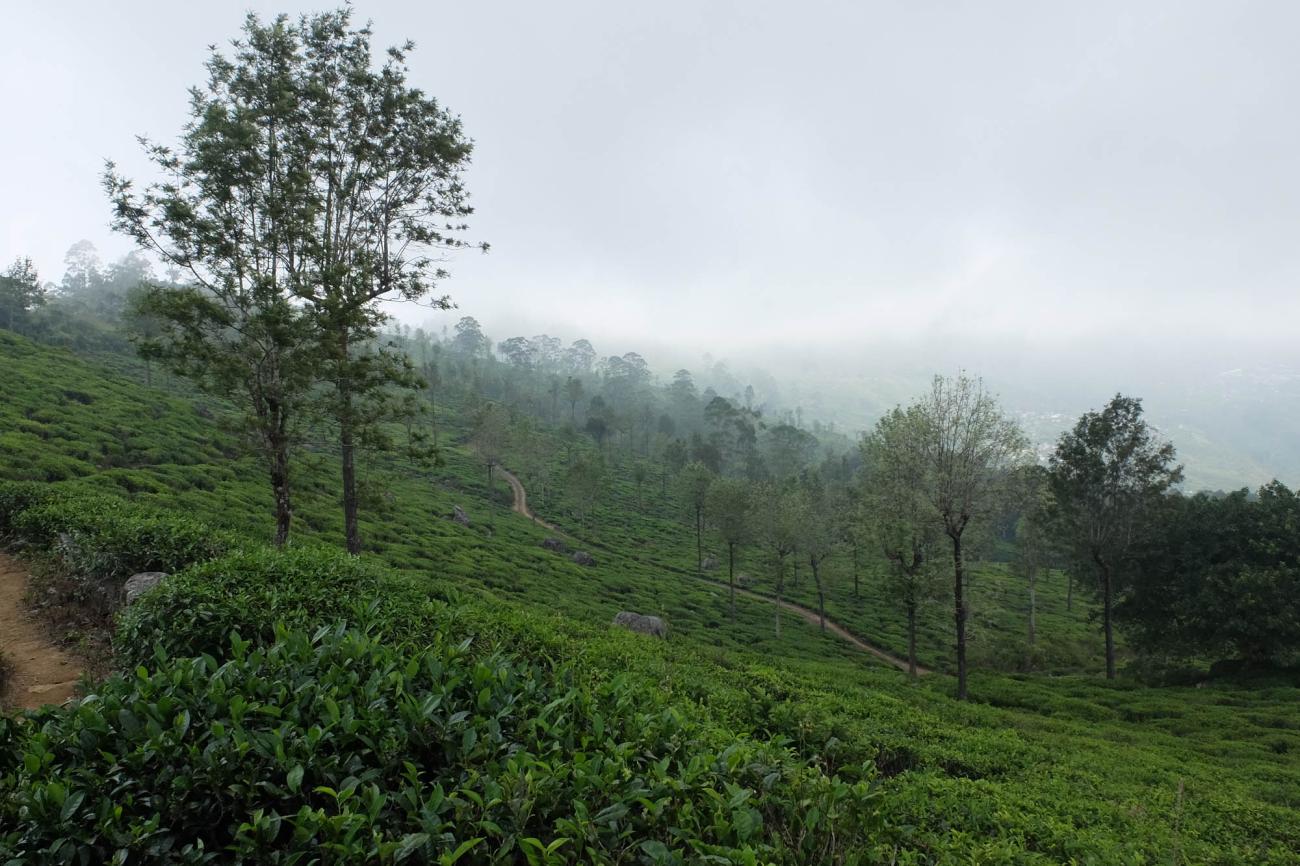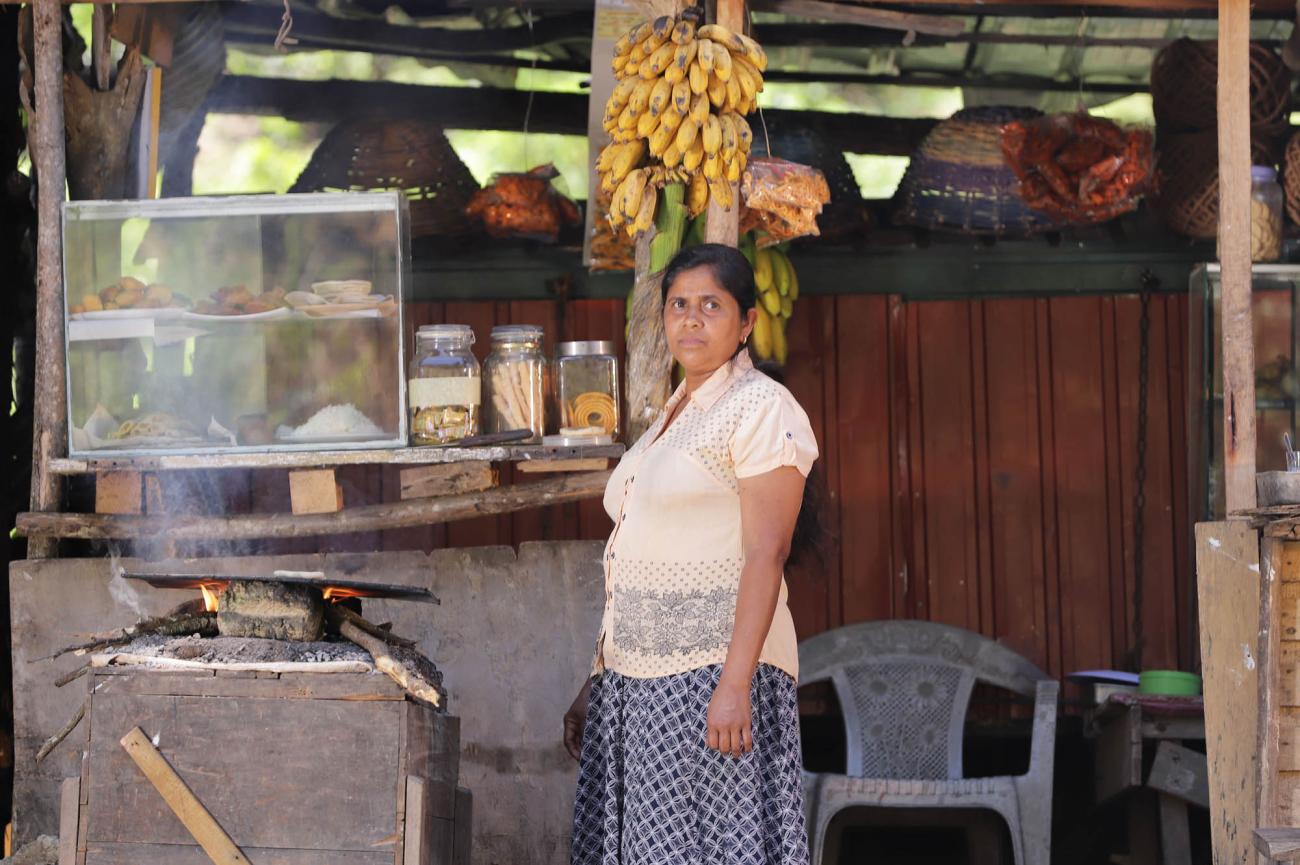Sri Lanka's Pekoe Trail: The Path to Sustainable Tourism
pekoe. noun. pe·koe ˈpē-kō : a black tea made from small-sized tea leaves especially in India and Ceylon.

The first definition I found on Google of the word ‘pekoe' referred to Sri Lanka as Ceylon, so I don’t think it can be that outdated, possibly because most teas are still trademarked as being from Ceylon, the colonial name for Sri Lanka.
It feels quite fitting though. In March, I spent a couple of weeks in Sri Lanka and part of my mission was to find out more about and hike along part of the Pekoe Trail, a 300km walking trail which was opened in 2023 and is already gaining popularity with tourists.
Tea country in Sri Lanka is one of those quintessential experiences, the rolling hills covered in acres of neatly trimmed, perfectly spaced tea bushes, each glowing bright green and amongst them the ladies in their saris plucking the tips of the tea to be taken to the colonial style factories where they will be processed and packaged into tea for us to take home or to be shipped off to Europe. One of the big draws and a highlight of any trip is the train from Kandy to Ella which goes through the beautiful mountains, past tea plantations and villages.
When you get even closer though and start spending time with a local guide hiking through this land you learn about another side to the tea plantations, and it isn’t a pretty one. When the British decided to plant tea, they had to clear an enormous amount of virgin forest, acres and acres of trees were cut down and with them went the delicate ecosystems and the wildlife. Leopards, elephants and the other animals that had made the mountains their homes had to go and the plantation owners set about destroying it all. Major Roberts went down in history as having personally shot over 1500 elephants.
The local Sri Lankans weren’t interested in working on the tea plantations picking the leaves so the British bought in Tamils from southern India, housed them in lines rooms on the tea plantations and set very low wages. Fast forward 120 years, the tea we drink is still picked by Tamils who still live in these tiny ramshackle houses earning the equivalent of around £2.50 a day for picking 25kg of tea.

This isn’t the background we imagine learning about as we hike through this beautiful country but the more I learnt, the more the plantations stopped looking like stunning, neat hillsides and instead started to remind me of the palm oil plantations I had seen in Borneo, plantations we all rally against as being so destructive.

At Wild Frontiers, we try not to shy away from difficult subjects, and we would rather offer the truth about a destination, so we started looking for enterprises we can support and experiences for our clients that will have a positive impact. One such place I visited was the Amba Tea Estate, a guesthouse and tea estate that has drastically changed conditions for their workers, not only do they pay a fair wage with a revenue share for their workers, but they work with the local community. They don’t just buy products from their neighbours and provide employment but have assisted them in setting up their own businesses with guesthouses, crafts and food products.
Another experience that we offer to our clients travelling in the area is a visit to the Tea Leaf Centre, a charity set up to provide education to the young adults of the families who work on the tea estates, teaching English, IT and business studies they provide the young adults with the skills to find jobs away from the tea plantations and to get out of the poverty in which they have grown up. Our clients can go into the centre to meet the young people, hear their stories and spend time talking with them in English to help them improve their language skills.

The Pekoe Trail is now bringing tourists into the tea plantations, not just to do a tour of the factory, but to spend time slowly hiking through, seeing the houses in which the tea workers live and bringing awareness to the more hidden side of these plantations.
Whilst it is still in its infancy, it is already increasing employment along its way, hikers can hire guides to escort them, stop in villages to buy snacks, fruit and cups of tea, stay in guesthouses and eat in local restaurants. We know from other destinations with such trails that it doesn’t take long for local people to start offering even more different experiences along the way, opening their homes to hikers, showing traditional crafts, offering food and creating a whole new area of sustainable tourism. We're sure it won’t be long before the Pekoe Trail has exactly this effect.
